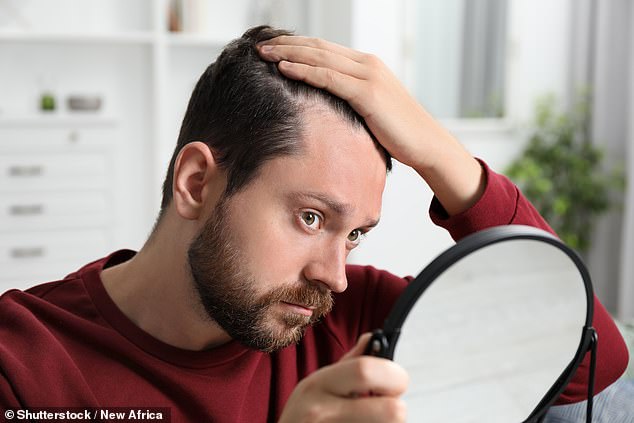Scientists reveal the common habit that could make you bald
The fear of going bald is something that weighs on the minds and scalps of millions of men around the world.
And if you’re anxiously checking your hairline, there’s bad news.
In a new study, scientists have discovered a link between alcohol consumption and hair loss.
Researchers from Pusan National University found that people who regularly drink alcohol are 1.4 times more likely to develop androgenetic alopecia (AGA).
AGA is the most common form of hair loss affecting millions of men and women worldwide.
Previous studies have suggested that the condition is mainly caused by genetic and hormonal factors.
However, the new research adds to growing evidence that lifestyle factors may also contribute.
“Individuals who consume alcohol may be slightly more likely to experience AGA than non-drinkers,” said Professor Yun Hak Kim, who led the study.
In a new study, scientists have discovered a link between alcohol consumption and hair loss (stock image)
Previous studies have highlighted a range of risks associated with drinking alcohol – both in the short and long term.
For example, research has shown that long-term alcohol use can increase your risk for diseases such as liver damage, cardiovascular disease and cancer.
However, until now, little research has been done on the link with hair loss, especially AGA.
In their new study, the researchers conducted the first systematic review and meta-analysis on alcohol consumption and AGA.
Their analysis found that drinkers were 1.4 times more likely to be diagnosed with hair loss than non-drinkers.
Although the researchers didn’t look at the reason behind this connection, they think it could be related to acetaldehyde – a byproduct of alcohol metabolism.
“One hypothesis is that acetaldehyde, a byproduct of alcohol metabolism, may disrupt the immune environment of the scalp – factors that could potentially contribute to AGA,” they explained in a statement.
“However, this proposed mechanism remains speculative.”

Their analysis found that drinkers were 1.4 times more likely to be diagnosed with hair loss than non-drinkers (stock image)
Overall, the researchers hope the findings will encourage further research into the link between alcohol consumption and hair loss.
“Our research could contribute to public health education, patient advice and targeted awareness campaigns, allowing individuals to make informed lifestyle choices regarding hair health,” Professor Kim added.
‘Over time, this could contribute to more comprehensive, personalized health strategies, where factors such as diet, genetics and lifestyle are better understood and integrated into hair loss prevention and treatment plans.
‘We hope this research will pave the way for improved and personalized treatments to improve hair health.’
Although hair loss is something that many men worry about, there are actually several benefits to going bald.
Research has shown that male pattern baldness is seen as a non-threatening form of social dominance.
It is also thought that bald men are more socially mature, intelligent, better educated and fairer than men with a full head of hair.
